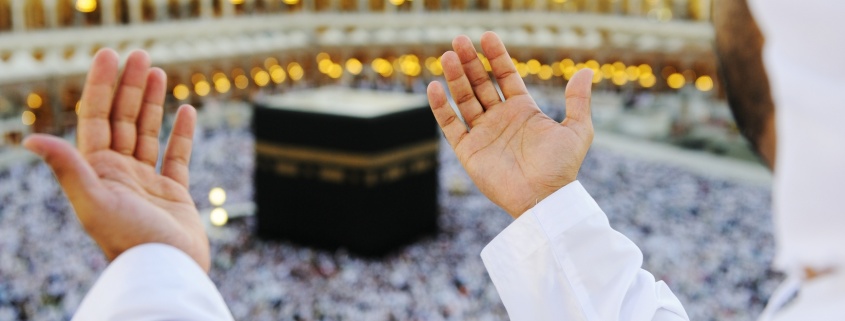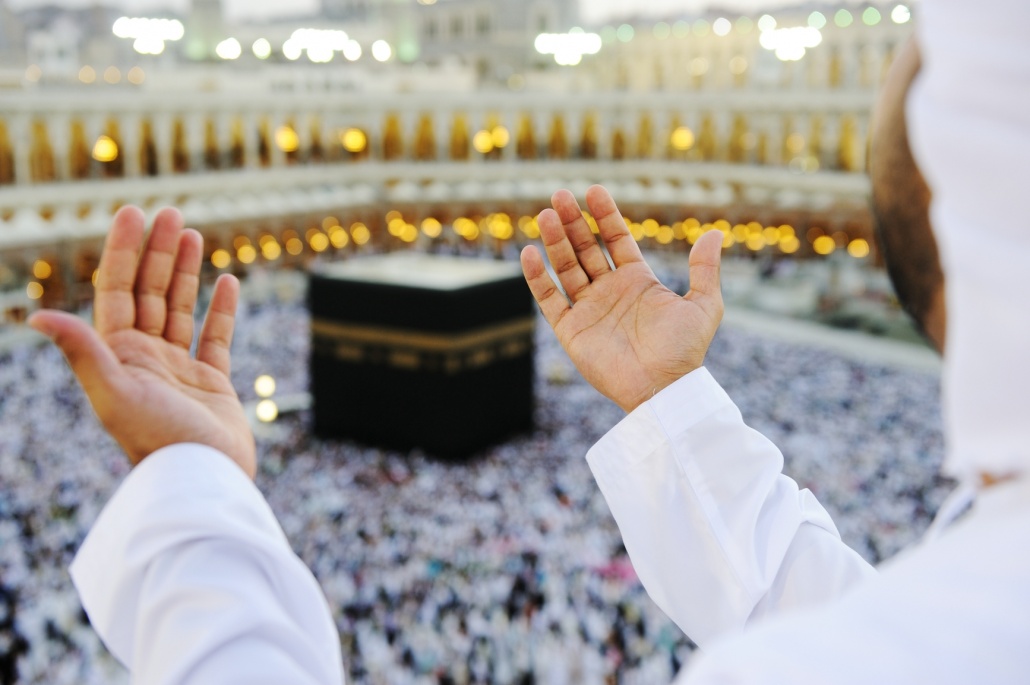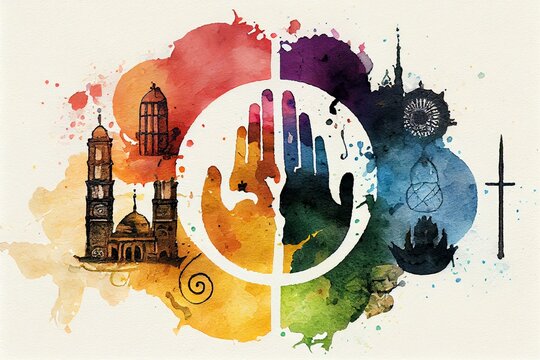When Satan’s away, the Muslims come out to pray
By Haroon Moghul
When I returned to the United States, I had not left Dubai too far behind. For an apartment, hence, I hoped to be near a mosque. So we favored Brooklyn’s Bay Ridge, a lovely low-rise neighborhood not far from the ocean, full of Arabs and Muslims, Italians and Catholics. We loved the halal butchers, shisha cafés (more for the grubby comfort food—sometimes a greasy chicken shawarma and undercooked fries are the cure for what ails you) and mosques close enough to walk to come Ramadan nights.
Before I’d done Ramadan in Dubai, I’d been into Muslim life collectively and institutionally. Now I yearned for anonymity, which to me seems inseparable from spirituality. I wanted to pray, not be recognized; I wanted to talk to Him, demand from Him, complain to Him, whine and groan, moan and plea, not to engage in a conversation with a human being I could meet elsewhere. (The less English spoken, the better.) I wanted to be alone with God with people who wanted to be alone with God. The Islamic Center of lonely hearts.
But Bay Ridge didn’t want us. We tried, mind you. We even thought we scored the second floor of a gorgeous house not far from the R train. But it fell through.
When we finally found our apartment, it was in a neighborhood where we hadn’t looked, something like the Balkans for its trifecta of civilizations, the intersection of Eastern Europeans and Orthodox Jews, post-Soviet and Semitic, with a substantial Pakistani community seeping in, every month showing up nearer the express train stop nearest us. The advantage to all this was only revealed during this, our first Ramadan, when descending a subway station staircase nearly as ancient as Islam, a welcome human traffic flow problem revealed itself. Mostly men but some women, many of both in shalwar qamiz.
We streamed into the mosque, less converging than not colliding, forming a hot mass and mess, save the fortunately punctual all the way up front—‘O believers, hasten to the first row, for in the firstmost row is air conditioning from thy Lord’—or the very late, who squeezed into the back, which was the street side of the mosque and therefore received what cool breezes the open windows permitted. For everyone else, the middle nation, there was God and hot. The literal meaning of Ramadan.
There must have been several hundred folks, stinking and smelling of samosas and sweat, too little deodorant and too much musk, the gorgeous recitation of the Qur’an versus the jaggedy orbit of ceiling fans around themselves. About to take off.
And I loved it. Desired it. Could have hugged it and kissed it, had it had any dimensions for my hands to take hold of. I cannot be here long enough, I thought. I want to be here, in this and like this, all the time. Not in the mosque, or rather not only in the mosque, but in Ramadan, which is a metaphysical embrace nevertheless experienced by us in the physical senses we know. There’s lightness to Ramadan, a sensation that a kind of spiritual gravity has been released; the world—the material world, yes, but everything else, too—has loosened, and you are a little closer to God.
I wasn’t at one with the universe, if that’s how you’re reading this. I’ve felt that before, in short bursts, mostly via meditation, and yes it is a wonderful feeling, but still not comparable to this. I felt God in me, though not literally or cheaply, as in, say, the way people claim, ‘God is inside all of us,’ which to me sounds not dissimilar from ‘we are all gods.’ (When I’m down and depressed, broken or just broke, I find this idea of believing in oneself to be precious vapid nonsense.) This was, rather, me feeling God in me in the way I know my wife is in the other room though I am on the couch: I hear her.
I knew He was there. I sensed Him. The static had gone away, has gone away, will be away. The antenna works better. Standing there in the formation lines of prayer, distracted by the cellphone jingle of a man who’d apparently missed the numerous pleas to silence such devices—delivered in Urdu and English, with great insistence—I felt something unexpected follow from this exuberance and enthusiasm for Ramadan. In this order: Fear, resentment, anger. I feared Ramadan’s departure. I resented its brevity. I was angry because of its inevitable departure. Or are you the good Muslim who likes the meme, ‘The God you pray to in Ramadan is the one you turn from the other 11 months of the year’?
Sure. Whatever. Blame us. Wasn’t He the same God who let Satan against us 11 months of the year? I’m sure it’s just a variation on the problem of free will and determinism, the question of why Allah would create us and test us without ever asking us if we were down. And let’s be honest: There’s plenty of reason not to want to be abandoned, not to descend and return out of Ramadan to the regular world without. Reality looks ugly these days, and liable to get uglier. Not least of all the stresses of living in a culture hostile to faith, frequently contemptuous of our specific faith. It’s exhausting.
And wider trends too are unsettling, too.
The change in climate, for example, the potential extinction of not just some but many species, on a mass scale; it’s like Noah’s Ark all over again, except this time the Prophet’s role is played by climate scientists, and some of those who claim Noah’s legacy are denying the floods, the pestilence, the drought, the ten plagues, the heat waves. We sometimes forget the connection of many of our rituals. The pilgrimage to Mecca is about Adam and Eve, Abraham and Hagar, Ishmael and Isaac; the last Prophet’s job was to revive and remind us. (Peace be upon them all.) And Ramadan?
Dear Noah: You served nine hundred fifty years, patiently and compassionately, in the face of the original Islamophobes—what else should I call them?—and in the end, not even all your family would go with you. And here I am, barely lasting the month. Of course, not everyone saw your endurance in the way I begrudge my shortness of spiritual breath. It was out of a desire for your status that the Companions questioned Muhammad, asking how it could be possibly fair that on the Day of Judgment Noah’s folk could point to centuries of worship, and they at best decades, and so the night of power was described, one night as a thousand months. In one of the last ten nights, Islam taught, you might find 83 years.
We are searching these last ten nights in honor of you, Noah.
I think of myself sometimes as if struggling to board an ark, pulled away by the sea surging around me, except those of us who stand where I do and as I do, we can’t always tell if we should be fighting the ocean or spurning the great life-raft. It hurts to, and my feet hurt, but the ceiling fans roar like jet engines and even that cellphone has stopped ringing. All of life comes down to whether you seize the opportunities in front of you, or resent the opportunities you do not have. Whether you resent the month of reprieve or resent the eleven months of trial and torment—they say Ramadan means ‘scorching,’ but it is the coolest month—or you resent it all, or you do the math.
A time may come when the only good people fit on a boat. And what if that time was all of your time, here on Earth? Keep on going on. It’s the odd of the last ten nights, just a few hours of which is therefore worth several years of worship, and let’s be honest here: I’m not worshipping years straight under any circumstances. Forty-five minutes or a decade later, the eighth rak’at is done, and we’re free to return home, even if we’re not sure we want to. The reason we feel more alive in Ramadan is because we’re alive in Ramadan longer than we’ll ever be alive.















2015
2,388 views
views
1
comments